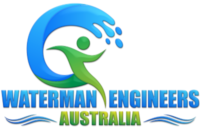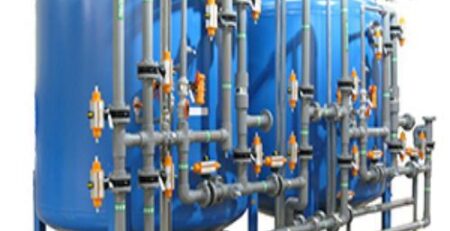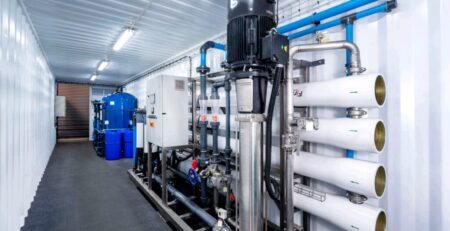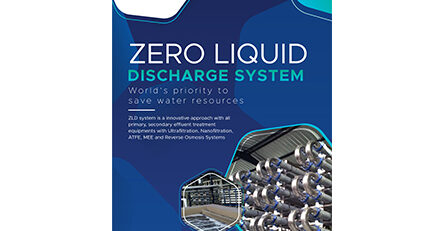Zero Liquid Discharge (ZLD) Technology: An Innovative and Sustainable Solution for Industrial Wastewater Management in Thailand
Zero Liquid Discharge (ZLD) technology is a wastewater treatment process that aims to reduce the amount of water that is discharged from an industrial plant to zero. ZLD is achieved by treating the wastewater to recover as much water as possible, which is then reused within the plant, and any remaining wastewater is evaporated or crystallized to produce solid waste, leaving behind only clean water.
In Thailand, ZLD technology offers several advantages for industrial wastewater treatment. It aims to reuse wastewater at a low cost and minimize its impact on the environment. ZLD processes typically involve pre-treatment, membrane filtration, evaporation and crystallization. The output is crystalline salts that can be reused or sold.
Zero Liquid Discharge Technology: An Innovative Solution for Thailand’s Water Scarcity and Pollution Challenges
In recent years, the issue of water scarcity has become more and more prevalent worldwide. Many countries, including Thailand, are facing a significant water shortage due to a combination of factors such as climate change, population growth, and industrialization. This has led to the development of new technologies to help conserve and manage water resources more efficiently, including zero liquid discharge systems.
In Thailand, there is a growing awareness of the need for clean drinking water and the importance of proper waste disposal. This has led to several initiatives to address the issue, including the development of efficient wastewater treatment systems that are easy to maintain and operate.
Implementing ZLD technology in Thailand’s industrial operations can help reduce water pollution and ensure efficient water usage. It requires a thorough feasibility study, the selection of appropriate technology, the development of a ZLD implementation plan, stakeholder engagement, continuous performance monitoring, and regular maintenance of the system.
Zero liquid discharge (ZLD) is a water treatment process that aims to eliminate liquid waste by recovering all of the water and solids from industrial processes. The process involves treating wastewater through various filtration and purification methods until it becomes pure enough for reuse or discharges into the environment. The resulting solid waste can be further processed for disposal or repurposed for other industrial uses.
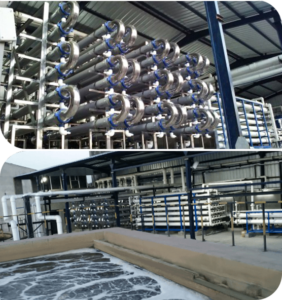
ZLD technology has been gaining momentum in Thailand as a means of addressing the country’s water scarcity problem. In particular, the Thai government has been promoting the adoption of ZLD systems in various industries, such as petrochemicals, food processing, and textile manufacturing. The adoption of ZLD systems not only helps to conserve water resources but also reduces the amount of liquid waste that is discharged into the environment, which can have harmful effects on aquatic life and ecosystems.
One of the key drivers of the advancement of ZLD systems in Thailand is the role of technology. Technological advancements have enabled the development of more efficient and cost-effective ZLD systems, making them more accessible to a wider range of industries. For example, advances in membrane technology have made it possible to treat water more effectively, while developments in evaporation and crystallization technologies have made the solid waste generated by ZLD systems more valuable for reuse in other industries.
The Thai government has also been providing incentives to encourage the adoption of ZLD systems. For example, the Board of Investment (BOI) offers tax exemptions and other benefits to businesses that invest in ZLD systems. This has helped to create a favorable environment for the growth of the ZLD industry in Thailand.
As a result, the adoption of ZLD technology will likely be accompanied by greater public acceptance and greater investor confidence in the long term. This is especially true in a highly urbanized city such as Bangkok, which is home to an extensive network of canals and the Chao Phraya River.
Zero Liquid Discharge: A Sustainable Solution for Thailand’s Industrial Wastewater Management
Zero Liquid Discharge (ZLD) is a sustainable solution for managing industrial wastewater in Thailand. ZLD is a process that aims to eliminate liquid discharge and produce solid waste instead. The process involves treating the wastewater until all the water is evaporated, leaving behind a solid residue that can be disposed of safely.
ZLD has become increasingly popular in Thailand, as the country faces significant water pollution problems due to rapid industrialization. Industrial wastewater, if not treated properly, can contaminate water resources and harm aquatic life. With ZLD, industrial wastewater can be treated efficiently, and the risk of contamination is reduced significantly.
The ZLD process typically involves several stages, including pre-treatment, reverse osmosis, evaporation, and crystallization. The pre-treatment stage removes solid particles, oil, and grease from the wastewater. The reverse osmosis stage removes dissolved solids, such as salts and minerals, from the water. The remaining water is then evaporated to produce steam, which is condensed to produce pure water. The solid residue left behind is crystallized and can be disposed of safely.
Implementing ZLD can be costly, but the benefits are significant. The process can help industries reduce their water consumption, which can result in significant cost savings. Additionally, ZLD can help companies comply with environmental regulations and improve their sustainability credentials, which can be a significant advantage in today’s business environment.
Thailand has made significant progress in implementing ZLD in various industries, including textile, petrochemical, and food processing. However, there is still much work to be done to ensure that all industries adopt sustainable wastewater management practices. The Thai government can play a crucial role in promoting ZLD by providing incentives to companies that adopt the technology and enforcing regulations to ensure compliance.
